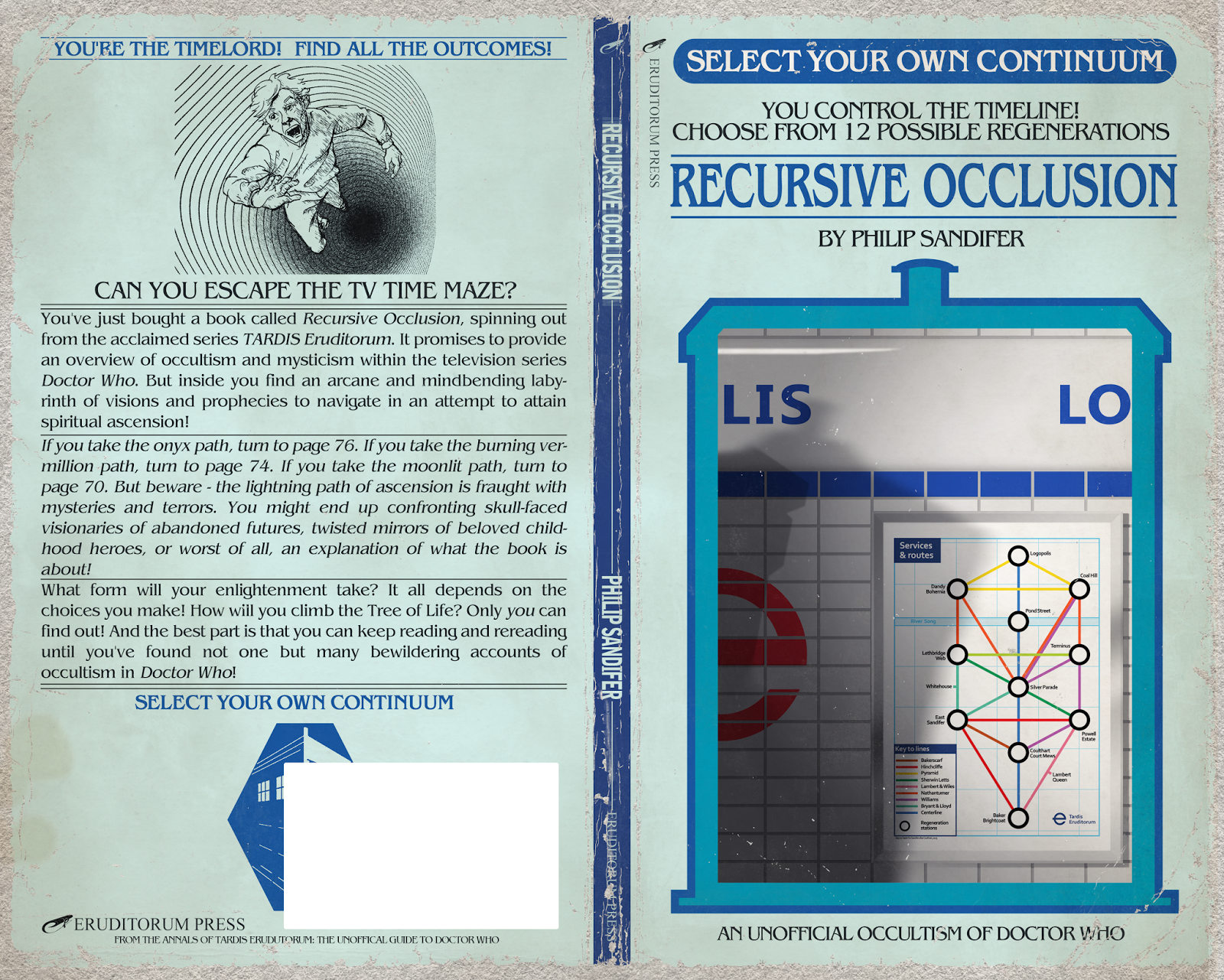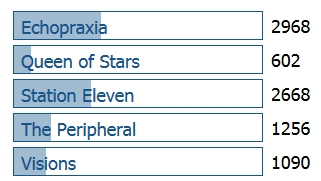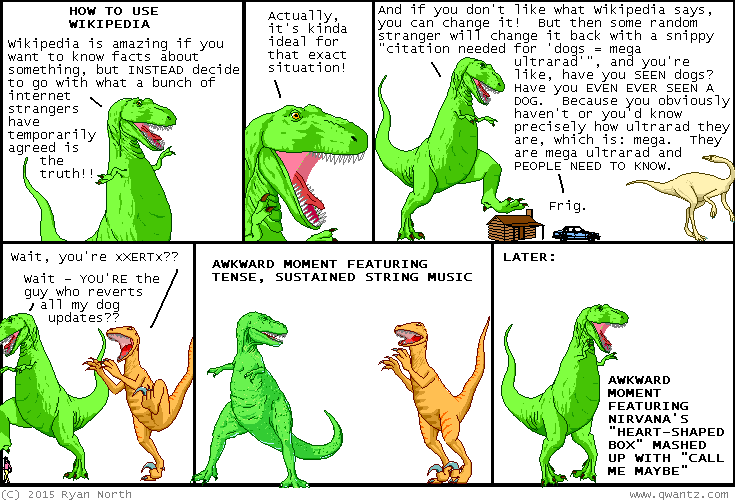The General Election will take place two months tomorrow, and while for voters at home it means just two months of wishing it would all shut up, for active political volunteers it’s two months of joy and excitement. Or hell and exhaustion. So from my many election campaigns past, here are my experiences of: worst Lib Dem candidate ever! Best old lady ever! Canvassing moment least likely to be repeated! Election secret I should have admitted at the time! Best and worst police! Best and worst dog bites! Best bakery order! Best conversation in bed! Most racist voter! And more!
Liberal Democrat Voice and the amazing Helen Duffett put out the call yesterday for people’s funniest canvassing stories, and though
I immediately commented with a
ready-made Eastleigh anecdote, my memories kept erupting. Particularly from the 1992-1997 Parliament, when I volunteered in every mainland UK by-election but one – celebrity visitors were snowed in, and I decided I wasn’t going to hitch-hike in that. Yes, I had even less money than my party and mostly got there and back by thumbing a lift, but in those days I was at least far more healthy and could survive it all (though my studies couldn’t).
And of course the vast majority of those by-elections were won by other parties – we’ve never won more than a handful in any one Parliament, with the four we took in the 1992 Parliament were very nearly our best ever. So next time a report exaggerates some terrible result by saying ‘Of course, in the old days the Lib Dems would have walked it, because they won every by-election’, we didn’t walk any of them – unless you mean until our shoes wore out, because they were all hard work – and
remember the facts of how rarely we actually won and how great our joy every time we managed it, and how thankless all the many more (or, at the time, fewer) volunteers in the places we didn’t stand an earthly but still stood anyway. Also remember that by-elections were and will again sometimes be won by standing up for the right thing and not just the far right thing – Romsey in favour of Europe and immigration when the Tories were being UKIP Mark I; Brent against the Iraq War when
both Labour and Tories backed spending blood and money like there was no tomorrow.
One – Best Doorstep Canvassing Experience Ever
Christchurch by-election, 1994 1993A tiny old lady comes slowly to the door. I stand back but lean forward in my best I-am-listening-but-not-looming-threateningly-way. I ask her who she’s voting for. “Well…” the tiny lady says, in an even tinier voice. I lean in closer. “I’ve always voted Tory…” Suddenly she grabs me by both shoulders and shakes me as she yells,
“But you’ve got to get the bastards out!”Two – Canvassing Experience Least Likely To Be Repeated In May 2015
Newbury by-election, 1994 1993The man who saw me coming and ran out of his front door to beg me for a stakeboard poster to have in his garden… Because every single other house on the street had one and all his neighbours were curling their lips at him. Freedom from conformity!
David Rendel might also have been the best by-election candidate for the troops that I ever saw: seemingly boundless energy on the doorsteps, and however late he finished, he’d always go round HQ and thank every volunteer as if every single one of us had made his day (no, they didn’t all do that).
Three – Best Candidate For Keeping Her Head On Bad News
Christchurch by-election, 1994 1993A canvassing team out on a lovely sunny day with an enthusiastic candidate in a sharp jacket and all of us feeling the wind was at our backs. What could go wrong? The most sourly Tory street in the most sourly Tory ward in the constituency, where not one single person was voting for us and most of them gave us abuse, ranging from immigration to That London to ‘You’re a layabout, bothering me in the middle of the day – why don’t you have a job?’ (ignoring that we were the ones out and about and they were the ones at home).
We met up on the street corner to report each individual tale of woe from sheet after sheet of unrestrained misery. Diana Maddock, the candidate, stood with her head tilted listeningly and nodded gently at each setback. Depressed, we all looked to her. “They’re all fascists, you know,” she said brightly. “But I think they’re going to vote for me.” And they did.
Four – Worst Lib Dem By-election Candidate Ever
South East Staffordshire by-election, 1996Jeanette Davy. An utter misery who drove all her aides to distraction, was never seen to smile, tutted loudly at voters when she wasn’t sighing, and was generally impossible to work with. For those who didn’t meet her, she helpfully appeared on TV to say that if people voted Labour to get the Tories out, that was “a price worth paying”. I remember one council leader who turned up to help, heard that, swore, got back in his car and drove all the way home again, saying he wasn’t going to help such a stupid [expletive deleted].
That’s excluding the one who defected to Labour on eve of poll in 1994 and wrecked both by-elections and Euro-elections for us – and I delivered for the git, whose name ironically was a portmanteau of two
Doctor Who characters who betrayed humanity to the Cybermen, in a continuity error in the real world. The two of them were in those rosy days the only two Lib Dem by-election lost deposits in England for donkeys’ years.
Five – Most Racist Voter
Eastleigh by-election, 1994The man one sunny day in a suburban crescent who got more and more heated about immigration while the other two canvassers did the whole rest of the street and all the neighbours stayed out one by one to listen. Never have I delivered so many calm “That isn’t true, sirs” or “I must disagree with you, sirs” at such increasing volume as the voter went from slightly racist to shouting conspiracy theories. After my final “I don’t believe we’re going to agree, sir, so I shall say good day,” he opened his gate and lumbered after me to the corner, screaming of our candidate
“Chidgey’s not an English name!!” [Hilarious fact: actually, it is.]
It made my going all Churchillian when people argued about immigration and refugees when I was an actual candidate seem positively tame.
The same by-election gets runner-up awards for two types of paternalism:
The man who growled at the Lib Dems and refused to let me talk to his wife when I politely enquired, because she voted the way she was told. Canvassers, never treat a house as monolithic (even if there’s an opposition poster there – a Labour poster-bearer at a different by-election told me quietly that he was a member and had to, but was voting tactically). The second he slammed the door, the upper window sprang open, and she quickly confided: “I always tell him that for a quiet life. But I always vote for you lot.”
The Labour voter on the next doorstep along from me who thought government should tell the workers what was good for them and hand out what they decreed when Tony Blair got in, because Labour and the unions knew best. And the Lib Dem canvasser I was tag-teaming with stoutly telling him that, no, workers should be involved in management rather than everything being from the top down, and the Labour man’s incredulous cry of “You can’t let workers make their own decisions!”
Six – Worst Evening’s Canvassing
Hexham, 1991 (party of students up to help out)In my late teens, shortly after I’d unwisely had all my hair buzzed off (and in a snowy January), and paired with an especially camp other Lib Dem in what was then a very Conservative and evidently conservative seat, it was probably the least successful evening’s campaigning I’ve ever had, from the very first house where my canvassing partner exclaimed “Oh, no, you’ll have to do this one!” and there was unstoppable tittering from the gate while I tried to keep my face straight asking, “Good evening – Mr Love…?” right to the point where we called it a night as one man set his dogs on us one way while trying to rev his van into us from the other.
My then-underweight (less than half my present size), skeletal student looks, though with hair grown back, were better deployed canvassing later that year in Kincardine and Deeside – almost as chilly, and shivering pitifully, I kept being sent to canvass old ladies because I got the best ‘mother me’ response from them.
Seven – Worst Day’s Leafletting
Islywn by-election, 1995Where it never once stopped raining. I’d hitch-hiked there, eventually being picked up by the police while striding along the dual carriageway towards Islywn after being dropped at a motorway junction at 2am, and on hearing what I was there for they kindly drove me to the Lib Dem HQ (making them much nicer than the unsympathetic Leicestershire officers who’d arrested and charged me when hitching back from Bradford South the year before). Disbelieving Valleys coppers: “You’re wasting your time. A donkey with a red rosette gets in round here, and we’ve had one for twenty-five years” (thank you, Mr Kinnock). I snatched a couple of hours’ sleep against a radiator and half-dried one side before going out all day delivering.
The only metaphorical ray of sunshine was the woman who stopped me to ask why she should vote Lib Dem instead of Plaid – I quoted Lloyd George about hating fences and wanting to kick down any he came across, because Liberals don’t like neat little boxes and borders that individuals can’t cross, and that’s what we don’t like about nationalists. I got us that one vote, but eventually had to go back to HQ with half the leaflets undelivered: not because they’d turned to papier-mâché and were coming off in thick clumps rather than one at a time, though they were; not because the highlighter pen had run off the photocopied route map, though it had; but because the toner had run off the map itself.
Hitch-hiking back was even worse, because the time you most need a lift is when no-one wants to spoil their car with a soaking straggler. I remember being dropped, eventually, soaked to the bone and freezing, at Cockfosters – as far out on the Tube as possible – and teeth-chatteringly ringing Richard from a phone booth. He poured a hot bath and peeled me into it at the far end, hours later. When he towelled me down afterwards it was the first time I’d been dry in over two days.
Eight – Worst and Best Dog Bites
Taunton, Local elections 1999Long narrow garden path, dog suddenly leaps out at the far end. I stuck the leaflet in and ran for it, but spent election evening 1999 in A&E and still have the scar.
Christchurch by-election, 1994Dog locks its teeth around my thigh; owner comes to the door, pales, and immediately offers to take a super-size stakeboard poster. At the corner of two big roads. Result! And, bonus, no flesh torn, though card wallet punctured and outer card needed replacing from the canine canines’ dent.
Nine – By-election (Lack of) Experience I Shouldn’t Admit To
Winchester by-election, 1997I’d been there a week, and the night before polling day, the sub-agent who was going to be running the sub-office – the secondary HQ out in the country somewhere, not the central city one I’d been at the whole time – fell suddenly ill. The agent was already worn to a frazzle, and everyone had all their jobs mapped out. Disaster! But, luckily, there at hand was a familiar face from all those by-elections, and a senior-ish figure (then) in the party. “Alex Wilcock will be running the sub-office,” she announced. I went for a late-night pizza with a well-known party staffer and blogger-to-be and confided just one tiny worry. Or, rather, hinted at it, though he immediately guessed what the problem was. In all the elections I’d worked in, I’d delivered leaflets, and canvassed, and done the press, and been a candidate, and even got the doughnuts. The one thing I’d never done was any of the agent-y stuff, so running a committee room or the art of the Shuttleworth were mysteries to me. Should I tell the agent? “Best not,” he said, trying not to spit pizza in all directions with laughter. “She’s got enough to worry about.”
So at 5am on polling day I was taken to be what appeared to be a disused aircraft hangar down a load of tiny roads, across bridges and through fords, and didn’t have a clue where I was or what I was doing. Trying to keep calm, I thought to myself, what
can I do? I can learn very quickly on the spot, I can wing it brilliantly, and I can cheer people up. So, surrounded by experienced volunteers both local and national, one side of the room surrounded by ready-to-tear coloured strips that had some mystical connection with the election, I gathered my troops and gave them a brief word before they went off with the Good Morning leaflets. I told them how vital it was we won; I told them that the evil Tory had only challenged the result on a technicality, and that the voters wanted our candidate but couldn’t be allowed to be complacent; I said what we stood for (sadly our key topics from the leaflets rather than anything exciting); and I said something on the spot to make them laugh. All in uncharacteristically bullet-point brevity.
“There’s one more thing,” I told them, very seriously. “I’ll be here co-ordinating the day, taking all the information, reporting it to the agent, and I’m not allowed to tell you how we’re doing – in fact, even if the candidate walks in, I’m not allowed to tell him
[he did, and I did as I was told and only told him it was very tight and he had to go out and do more]. Now, I know I’ve been put here by the main party, and that some of you have been working to win Winchester for years and know far more about it than I ever will. So as well as acting on your local knowledge whenever something comes up, one of the most important things I can do is make sure that those of us from outside are working in the same way those of you who live here do. Before you start knocking on doors, then, just so we know everyone’s getting it right, I’d like [potentially stroppy but very experienced local party member I’d been told to keep on side] to quickly explain to us outsiders how you do it
here…”
By the afternoon, though I’d been told even I shouldn’t think about the data I was reporting to the agent, my estimate was that we were looking at a majority of well over 20,000, and I was worried that I’d got it all terribly wrong. I hadn’t.
Ten – Best Coming-Out Moment
Kincardine and Deeside by-election, 1991 Surprisingly, my best coming-out moment wasn’t while being an out gay candidate myself (the first time I was quoted as one of only two for the Lib Dems, which I was completely certain wasn’t right, so four years later I put together the list of over two dozen myself because no-one else was doing it), but at my very first Parliamentary by-election. Being driven up to North Aberdeenshire with a coach-load from Scottish Lib Dem HQ and then staying there several days, we all had to be found places to sleep. I was spoiled: unlike many later campaigns, this wasn’t a sleeping bag on the floor, but a big actual bed, with only one other person in it, it being assumed that studenty types wouldn’t mind. Nice bloke, we’d got on well while chatting earlier in the day, and as we tucked in he warned me hesitantly, “While I’m asleep, I tend to grab onto things, but don’t worry, I’m not a homosexual.” I’m sure there were many ways I could have broken it to him more reassuringly, but given a feed line like that I couldn’t resist replying, “Don’t worry – I am.” Which is the first time I’d come out to someone while already in bed with them. He was a good Liberal and absolutely fine, so we nattered away very happily until he said something about Americans and I did it to him again: coming out as half-American, though, made him groan and roll over.
Not a sexy story in the end, then, but back in 1998 I did manage to canvass for the Alliance Party in Belfast, where my accent managed to put off both ‘sides’, when a man in a much-too-small kimono that covered very little of his chest hair and almost nothing of his thighs came to the door, and I had to concentrate hard on remembering every single word of my usually automatic spiel…
Eleven – Best photo-opportunity
Wirral South by-election, 1999 1997I worked for a couple of weeks in what was going to be Labour’s last by-election gain before the first Blair landslide, and our vote holding up surprisingly well was a good omen. My favourite bit, unusually, was a press conference wheeze I came up with: somehow our mostly-detached technically-Lib Dem local-ish MP David Alton had been persuaded to turn up in support, and wanted to run on law and order. The Major Government had cut police numbers in Merseyside, and we had all the very serious statistics of exactly how many hundred they were short which, amid the blizzard of daily figures from all the campaigns, no-one would listen to. Until I took two police officer pictures (one woman, one man) from our standard artwork, blew them up on the photocopier, and the press trooped in to find the wall covered with a photogenic 236 (or whatever it was) alternating A4 police heads to illustrate the point.
It was the only one of our press conferences that I remember getting decent coverage other than the one that was meant to be our Transport Spokesperson complaining about the trains, and which he had to give via his mobile when the train he was coming on broke down and stranded all the passengers (his researcher was later cleared of putting sugar in the engine).
Twelve – Best Result (ish)
Monklands East by-election, 1994Squeezed between Labour and the SNP, though we had a great candidate he was never going to be their next MP after John Smith. But after spending a few days helping out there, I went to Germany for a meeting of European Young Liberal Leaders. As Chair of the Liberal Democrat Youth and Students (England and Wales) I was there, as was the Chair of the Scottish Young Liberal Democrats, and in those pre-Internet boom days we tuned in to British Armed Forces Radio first thing on the morning after polling day. We came down to breakfast arm in arm and grinning ear to ear. ‘Another great by-election victory?’ the others asked us. “No, we lost our deposit – but we went up to third and beat the Tories!”
Baker’s Dozen – Best Order and Dodgiest Opinion Poll
Eastleigh by-election, 1994Possibly my favourite by-election memory was striding one morning into the local bakery to utter the unusual but satisfying words, “Could I have two hundred doughnuts, please?” They offered ridiculous discounts for multiple buys, so that, say, one doughnut might be 85p, but you’d get three for £2, or ten for £5, with escalating discounts the more you bought. These were for the cheery campaign HQ and all the hundreds of volunteers rather than personal consumption, but the huge stack of boxes had the advantage of obscuring the rosette that might have put off the opinion pollster who then stopped me on the street. “Oh no,” I remember saying, “I wouldn’t like that Tony Blair as Labour Leader. Margaret Beckett’s the one you want, she’ll be very popular, and John Prescott, he’s a sensible man.”
Since then, I’ve always taken opinion polls – and what people tell you on the doorstep – with just a pinch of icing sugar.
You’d think I’d have lots of stories from the two times I was a Parliamentary candidate myself, and I probably do somewhere, but they’re buried deep in a part of my memory labelled ‘long slog’. My first time, when I was the youngest candidate in the region, I did at least get some media attention, partly because the media wanted someone under thirty and I was it. The other reason was that the Lib Dems’ Regional Media Co-ordinator put me up for radio shows and other places where a candidate might be asked Very Hard Questions (actually, that reminds me of my debates in that campaign, but they’d need a post all of their own) because she claimed that there were only two Lib Dem candidates in the region that she trusted to know all our policies and put them across effectively, and she kept putting my name forward instead of the other one – because he was David Rendel and he had better things to do, like winning his seat, while I could do far more good for the party as a spokesperson than tramping round a Labour-Tory marginal in which I was inevitably dead meat.
If only someone had done a similar assessment for where to put Natalie Bennett!
































